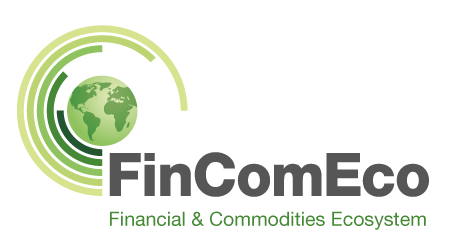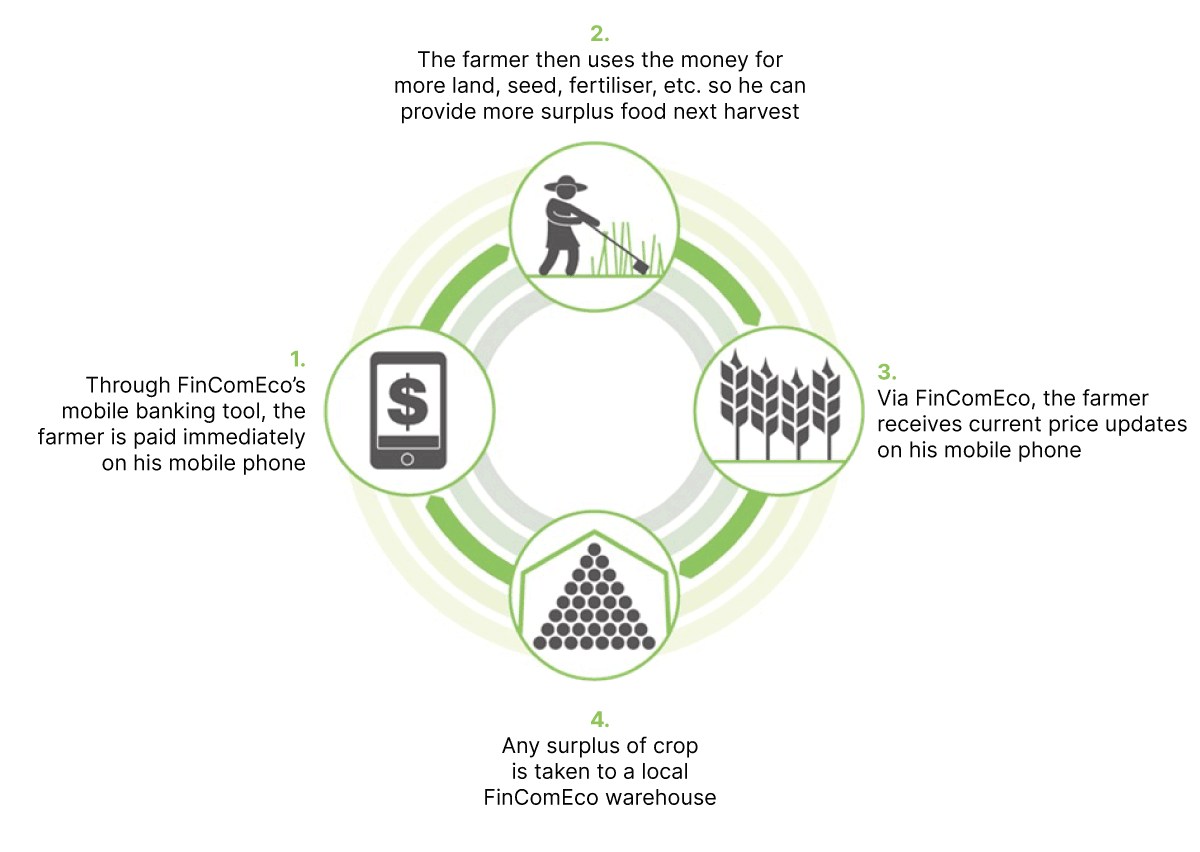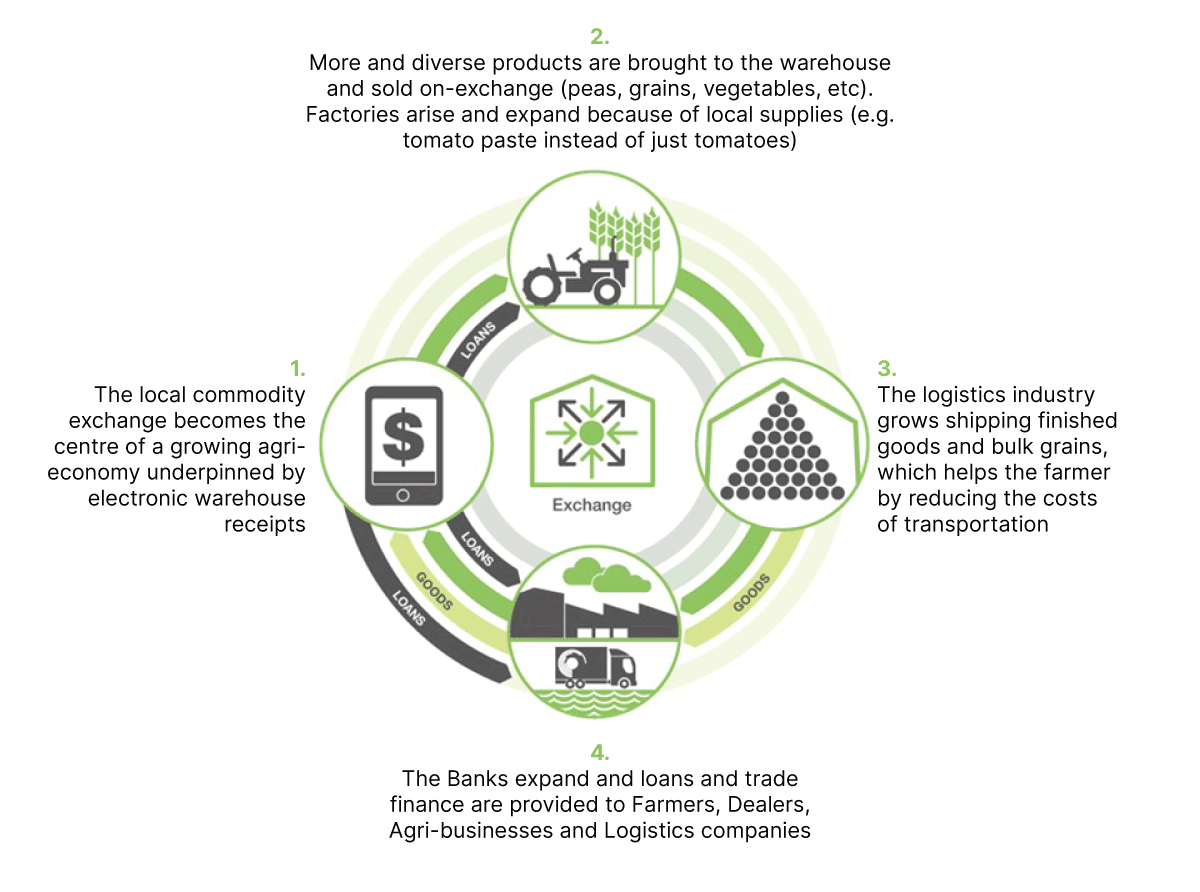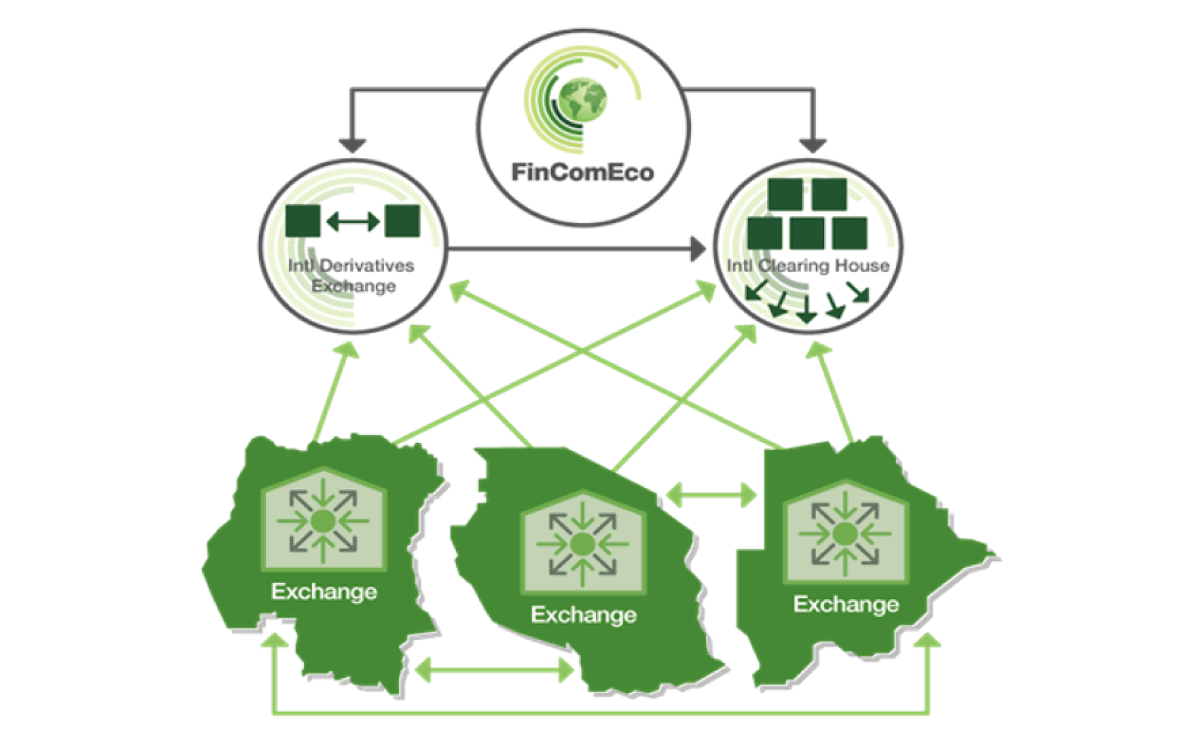
FinComEco helps smallholder farms to maximise their earning potential by linking agriculture to the latest financial technology. By enabling agri-commodity exchanges and warehouse receipts, FinComEco facilitates financial inclusion of communities with commodities.
Our goals:
- Establishing and reinvigorating local commodity exchanges
- Maximising earning potential for smallholder farmers
- Exchange technology, mobile e-commerce and e-warehouse receipts
- Facilitating finance for agri-commodities & communities
- Holistic secure cloud-enabled financial agri-ecosystem
- Partnership with development organisations, governments, research bodies, and the private sector
At the fundamental level, FinComEco sets up a virtuous circle for farmers, helping increase their business and workflow:

This is the middle tier of FinComEco’s involvement. It sets up a virtuous circle to deliver an agricultural exchange, which ties the farmer into a growing agri-economy:

As the farmers and dealers become more sophisticated, the exchange leveraging the aggregated services FinComEco will provide can offer:
- Forward sale contracts to the farmer to get money in advance
- Futures contracts (on a very small lot size) to allow the farmer and dealers to hedge prices
- The use of derivative contracts will stimulate trading and price discovery in all commodities traded
Lastly, the top tier of FinComEco’s in-country involvement sets up a virtuous circle which deepens and grows the financial economy (banking and markets):

Banking grows in importance within the economy as loans and trade finance are provided to farmers, dealers, agri-businesses and logistics companies. More people can trade on exchange, leading to growth in hedging, forward planning and speculation.
This tier of the FinComEco model illustrates the ecosystem where the markets of one country are linked to strengthen and deepen them. FinComEco operates a single derivatives exchange as well as a CCP clearing house by which local regulators from each individual country control access and use. As a result, the exchanges begin to facilitate trade between themselves and each other’s commodities and derivatives, which then further stimulates trade on an international level. The increasing use of exchanges encourages growth into other commodities and instruments.
